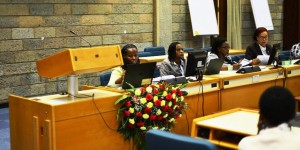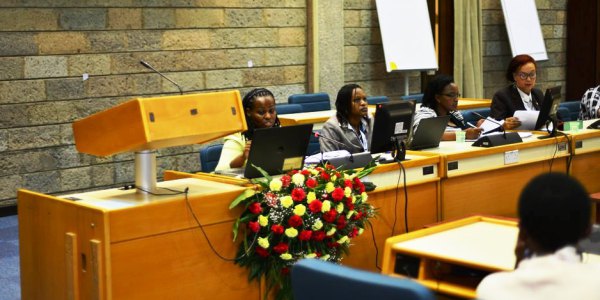
Extractive industries represent a major source of wealth in African economies. The sector, however, is male dominated and a difficult terrain for women to venture.
One of the barriers that women encounter in this sector is related to financing. Women are underrepresented or totally absent in the large scale commercially viable mining as well as the oil and gas sector value chains. This is because this sector is highly financially demanding and majority of the women lack the required financial resources.
This challenge has confined women in Africa, Kenya included to participating as informal artisans and only within small scale mining. Here, women apply traditional tools and methods of extraction, holding the shortest end of the value chain.
According to Caroline Ngonze, a programme specialist with United Nations Development Programme (UNDP), it is important to acknowledge that women with their formal and informal contributions make up a tremendous component of this sector’s success.
Ngonze says: “In cases where women are not able to fully participate in the extractive industry or garner the full extent of compensation for the work that they do, they suffer alongside their families, communities and countries as well as the extractive industry companies themselves.”
Access
Ngonze reiterates: “Without financing and inability to access resources, it is impossible for women to be entrepreneurs.”
Rachael Njau, Regional Representative for Tanzania Women Mining Association (TAWOMA) is one of the few women who have been involved in the extractive industry sector.
Njau says when she began mining in 2000, she encountered many challenges with lack of finances taking a high toll on her.
“The licences across sectors such as business, environment, health and technology almost crippled my venture even before I could launch it,” Njau explains. She notes: “The equipment and cost of mining was very expensive.”
Njau was compelled to start farming as a side business to finance the mining project.
According to Njau, the unpredictability of the sector makes accessing finances difficult as banks cannot hold on to the promise of hitting a mineral mine as collateral.
“Women who have attempted to undertake this business have more than often found themselves in financial crisis especially when banks have to auction their land and property,” observes Njau.
Professor Maggie Kigozi, President of Business and Professional Women in Uganda explains that while it is difficult to own big oil refineries, they do not have to be relegated to the lowest step of the ladder.
Opportunities
Says Kigozi: “Opportunities for women are unlimited. They can be suppliers, providing logistic and ICT services; all these are avenues for women’s economic empowerment.”
However, Kigozi notes, most of these women lack information on bank products, collateral and financial management skills as well bureaucracy within the banking sector.
“The small scale woman in the extractive industry needs to be empowered to rise further,” reiterates Kigozi. She adds: “Financial solutions must accommodate the different categories of women and the challenges that exist within the sector.”
Kigozi challenges financial institutions to bank on women and dares them to go into mining by mainstreaming gender into their products as a corporate social responsibility as well as capacity building their women clientele.
“Banks need to realize that by excluding women, they are missing a largely untapped profitable market,” notes Kigozi. She adds: “The market is only this way because banks demand unrealistic documents and they are considered a low grade business venture.”
According to Kigozi, financial institutions should support women based on their past relationship in loan repayment and consider taking minerals such gold as collateral. Kigozi reiterates that opportunities for women are also good for business and economic development. “Women borrowers from microcredit programmes have the highest repayment rates of any group in the world, and women in business are less likely to bribe government officials than are men.”
In fact women in Kenya have proven to be the best in repaying personal loans to banks which hardly demand for the hard to get collaterals. This has seen many banks now developing women only products.
Also, when in control of financial resources, women are more likely to devote resources to food, children’s health care and education. Studies have indicated that children’s growth is increased by 17 per cent when mothers control credit than when fathers do.
This is because when a woman takes a loan it would highly be used into ensuring family development as opposed to men who take loans for self-growth.

